Search Results for Biotech & Society
To browse more topics, click a topic below or try our advanced search.
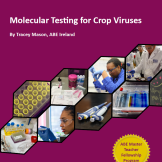 Resource (Teaching Materials, Lab-based)
Resource (Teaching Materials, Lab-based)Molecular Testing for Crop Viruses

This unit, developed by ABE Ireland Master Teacher Fellow Tracey Mason, includes five lessons that provide theoretical and hands-on applications to understand plant-virus-vector… Read more
Appropriate AgesUpper Secondary
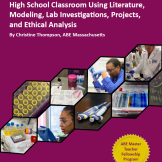 Resource (Teaching Materials, Lab-based)
Resource (Teaching Materials, Lab-based)Exploring CRISPR-Cas9 in the High School Classroom Using Literature, Modeling, Lab Investigations, Projects, and Ethical Analysis

This unit, developed by ABE Massachusetts Master Teacher Fellow Christine Thompson, introduces students to CRISPR-Cas9 gene-editing technology through a combination of literature, modeling,… Read more
Class Sessions9–15
Appropriate AgesUpper Secondary, Advanced
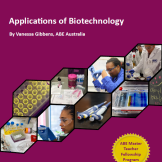 Resource (Teaching Materials, Lab-based)
Resource (Teaching Materials, Lab-based)Applications of Biotechnology

In this engaging unit, developed by ABE Australia Master Teacher Fellow Vanessa Gibbens, students explore real-world applications of biotechnology. Through hands-on use of biotechnology techniques… Read more
Class Sessions15–20
Appropriate AgesUpper Secondary
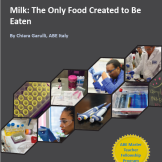 Resource (Teaching Materials, Classroom-based)
Resource (Teaching Materials, Classroom-based)Milk: The Only Food Created to Be Eaten

In this inquiry-based science project, developed by ABE Italy Master Teacher Fellow Chiara Garulli, students gain a greater understanding of enzyme activities, proteins, molecular structure,… Read more
Class Sessions10–20Appropriate AgesUpper Secondary
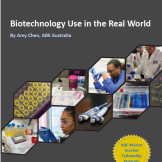 Resource (Teaching Materials, Classroom-based)
Resource (Teaching Materials, Classroom-based)Biotechnology Use in the Real World

In this project, developed by ABE Australia Master Teacher Fellow Amy Chen, students become familiar with the many ways that biotechnology is in the world around us, and how it impacts our lives, and… Read more
Class Sessions18
Appropriate AgesUpper Secondary
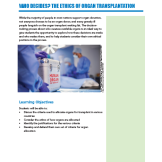 Resource (Teaching Materials, Classroom-based, Pocket Lesson)
Resource (Teaching Materials, Classroom-based, Pocket Lesson)Who Decides? The Ethics of Organ Transplantation

In this pocket lesson, students learn about the process adopted in various areas of the world to decide who receives available organs. This content gives students the opportunity to explore how these… Read more
Class Sessions3Appropriate AgesUpper Secondary, Introductory
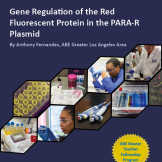 Resource (Teaching Materials, Web-based)
Resource (Teaching Materials, Web-based)Gene Regulation of the Red Fluorescent Protein in the PARA-R Plasmid

This lesson introduces students to the concept of gene regulation, and several related topics. It covers several types of operons, including the regulation mechanism involved in Foundations of… Read more
Class Sessions11Appropriate AgesLower Secondary, Upper Secondary
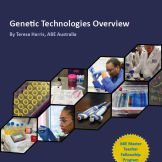 Resource (Teaching Materials, Web-based)
Resource (Teaching Materials, Web-based)Genetic Technologies Overview

This lesson provides an introduction to eight current topics in biotechnology, including polymerase chain reaction (PCR), DNA "fingerprinting," and genetic sequencing. The scientific principles… Read more
Class Sessions11Appropriate AgesUpper Secondary
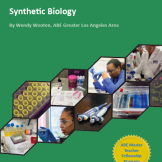 Resource (Teaching Materials, Classroom-based)
Resource (Teaching Materials, Classroom-based)Synthetic Biology

In this lesson, students learn research and learn the underlying concepts of Synthetic Biology, learn how to apply engineering design process to create systems of devices composed of parts of DNA,… Read more
Class Sessions5–15Appropriate AgesUpper Secondary
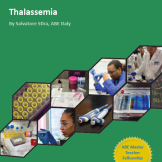 Resource (Teaching Materials, Classroom-based)
Resource (Teaching Materials, Classroom-based)Thalassemia

In this lesson, students deepen their understanding of the relationship between scientific research in modern biology and medicine by studying the genetic basis of thalassemia, a form of hereditary… Read more
Class Sessions15Appropriate AgesUpper Secondary
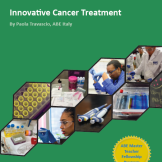 Resource (Teaching Materials, Classroom-based)
Resource (Teaching Materials, Classroom-based)Innovative Cancer Treatments

This lesson aims to engage and deepen students’ experiences and expertise in the field of “Cancer Cells” and “Innovative Therapies for recurring or difficult-to-treat cancers,” and in particular… Read more
Class Sessions15–20
Appropriate AgesUpper Secondary
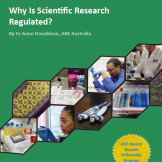 Resource (Teaching Materials, Classroom-based)
Resource (Teaching Materials, Classroom-based)Why Is Scientific Research Regulated?

This lesson covers scientific regulation and an overview of bioethics, as well as nuclear energy, gene editing, and a number of other hot-button issues that students will definitely have heard about… Read more
Class Sessions10Appropriate AgesUpper Secondary
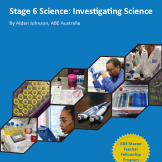 Resource (Teaching Materials, Classroom-based)
Resource (Teaching Materials, Classroom-based)Stage 6 Science: Investigating Science

In this lesson, students explore ethical and social perspectives, model X-ray crystallography, and explore the science through LabXchange to assess the impacts these technologies and scientific… Read more
Class Sessions25Appropriate AgesUpper Secondary
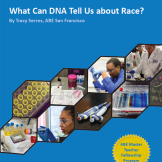 Resource (Teaching Materials, Lab-based)
Resource (Teaching Materials, Lab-based)What Can DNA Tell Us About Race?

This project examines issues of race and racism using a variety of scientific lenses, and debunks many widely held misconceptions. Students use a variety of techniques to look at misconceptions,… Read more
Appropriate AgesUpper Secondary
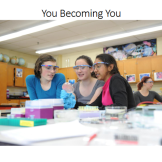 Resource (Teaching Materials, Classroom-based)
Resource (Teaching Materials, Classroom-based)You Becoming You

In this module, students are introduced to the concept of genes (genotypes), which code for the traits expressed by organisms (phenotypes). To engage students in the topic, they make an… Read more
Class Sessions6-8Appropriate AgesLower Secondary, Upper Secondary, Introductory
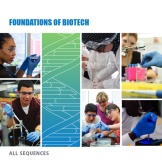 Resource (Teaching Materials, Lab-based)
Resource (Teaching Materials, Lab-based)Foundations of Biotech

The Foundations of Biotech labs were created to introduce students to biotech techniques and concepts; in these labs, students explore recombinant DNA technology.Sequences of these labs were designed… Read more
Class Sessions4–20
Appropriate AgesUpper Secondary, Advanced
 Resource (Teaching Materials, Lab-based)
Resource (Teaching Materials, Lab-based)Molecular Testing for Crop Viruses

This unit, developed by ABE Ireland Master Teacher Fellow Tracey Mason, includes five lessons that provide theoretical and hands-on applications to understand plant-virus-vector… Read more
Appropriate AgesUpper Secondary
 Resource (Teaching Materials, Lab-based)
Resource (Teaching Materials, Lab-based)Exploring CRISPR-Cas9 in the High School Classroom Using Literature, Modeling, Lab Investigations, Projects, and Ethical Analysis

This unit, developed by ABE Massachusetts Master Teacher Fellow Christine Thompson, introduces students to CRISPR-Cas9 gene-editing technology through a combination of literature, modeling,… Read more
Class Sessions9–15
Appropriate AgesUpper Secondary, Advanced
 Resource (Teaching Materials, Lab-based)
Resource (Teaching Materials, Lab-based)Applications of Biotechnology

In this engaging unit, developed by ABE Australia Master Teacher Fellow Vanessa Gibbens, students explore real-world applications of biotechnology. Through hands-on use of biotechnology techniques… Read more
Class Sessions15–20
Appropriate AgesUpper Secondary
 Resource (Teaching Materials, Lab-based)
Resource (Teaching Materials, Lab-based)What Can DNA Tell Us About Race?

This project examines issues of race and racism using a variety of scientific lenses, and debunks many widely held misconceptions. Students use a variety of techniques to look at misconceptions,… Read more
Appropriate AgesUpper Secondary
 Resource (Teaching Materials, Lab-based)
Resource (Teaching Materials, Lab-based)Foundations of Biotech

The Foundations of Biotech labs were created to introduce students to biotech techniques and concepts; in these labs, students explore recombinant DNA technology.Sequences of these labs were designed… Read more
Class Sessions4–20
Appropriate AgesUpper Secondary, Advanced
 Resource (Teaching Materials, Classroom-based)
Resource (Teaching Materials, Classroom-based)Milk: The Only Food Created to Be Eaten

In this inquiry-based science project, developed by ABE Italy Master Teacher Fellow Chiara Garulli, students gain a greater understanding of enzyme activities, proteins, molecular structure,… Read more
Class Sessions10–20Appropriate AgesUpper Secondary
 Resource (Teaching Materials, Classroom-based)
Resource (Teaching Materials, Classroom-based)Biotechnology Use in the Real World

In this project, developed by ABE Australia Master Teacher Fellow Amy Chen, students become familiar with the many ways that biotechnology is in the world around us, and how it impacts our lives, and… Read more
Class Sessions18
Appropriate AgesUpper Secondary
 Resource (Teaching Materials, Classroom-based, Pocket Lesson)
Resource (Teaching Materials, Classroom-based, Pocket Lesson)Who Decides? The Ethics of Organ Transplantation

In this pocket lesson, students learn about the process adopted in various areas of the world to decide who receives available organs. This content gives students the opportunity to explore how these… Read more
Class Sessions3Appropriate AgesUpper Secondary, Introductory
 Resource (Teaching Materials, Classroom-based)
Resource (Teaching Materials, Classroom-based)Synthetic Biology

In this lesson, students learn research and learn the underlying concepts of Synthetic Biology, learn how to apply engineering design process to create systems of devices composed of parts of DNA,… Read more
Class Sessions5–15Appropriate AgesUpper Secondary
 Resource (Teaching Materials, Classroom-based)
Resource (Teaching Materials, Classroom-based)Thalassemia

In this lesson, students deepen their understanding of the relationship between scientific research in modern biology and medicine by studying the genetic basis of thalassemia, a form of hereditary… Read more
Class Sessions15Appropriate AgesUpper Secondary
 Resource (Teaching Materials, Classroom-based)
Resource (Teaching Materials, Classroom-based)Innovative Cancer Treatments

This lesson aims to engage and deepen students’ experiences and expertise in the field of “Cancer Cells” and “Innovative Therapies for recurring or difficult-to-treat cancers,” and in particular… Read more
Class Sessions15–20
Appropriate AgesUpper Secondary
 Resource (Teaching Materials, Classroom-based)
Resource (Teaching Materials, Classroom-based)Why Is Scientific Research Regulated?

This lesson covers scientific regulation and an overview of bioethics, as well as nuclear energy, gene editing, and a number of other hot-button issues that students will definitely have heard about… Read more
Class Sessions10Appropriate AgesUpper Secondary
 Resource (Teaching Materials, Classroom-based)
Resource (Teaching Materials, Classroom-based)Stage 6 Science: Investigating Science

In this lesson, students explore ethical and social perspectives, model X-ray crystallography, and explore the science through LabXchange to assess the impacts these technologies and scientific… Read more
Class Sessions25Appropriate AgesUpper Secondary
 Resource (Teaching Materials, Classroom-based)
Resource (Teaching Materials, Classroom-based)You Becoming You

In this module, students are introduced to the concept of genes (genotypes), which code for the traits expressed by organisms (phenotypes). To engage students in the topic, they make an… Read more
Class Sessions6-8Appropriate AgesLower Secondary, Upper Secondary, Introductory
 Resource (Teaching Materials, Web-based)
Resource (Teaching Materials, Web-based)Gene Regulation of the Red Fluorescent Protein in the PARA-R Plasmid

This lesson introduces students to the concept of gene regulation, and several related topics. It covers several types of operons, including the regulation mechanism involved in Foundations of… Read more
Class Sessions11Appropriate AgesLower Secondary, Upper Secondary
 Resource (Teaching Materials, Web-based)
Resource (Teaching Materials, Web-based)Genetic Technologies Overview

This lesson provides an introduction to eight current topics in biotechnology, including polymerase chain reaction (PCR), DNA "fingerprinting," and genetic sequencing. The scientific principles… Read more
Class Sessions11Appropriate AgesUpper Secondary
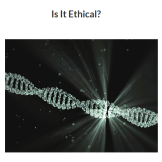 Resource (Web-based)
Resource (Web-based)Bioethics of Gene Editing

Lyme disease is a pervasive problem in the United States. Kevin Esvelt, a scientist at MIT, is trying to use gene editing to disrupt the cycle of transmission. In this module, students learn about… Read more
Appropriate AgesUpper Secondary, Advanced
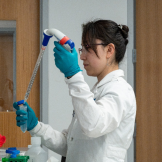 Blog Post
Blog PostA Redesigned Precision Medicine Module Sparks Student Excitement

Excitement is in the air in a biology classroom in Tampa, Florida. As Mishell Thomas-King explains how her students will be trying out a new lab next quarter that lets them test their own DNA, a… Read more
 Blog Post
Blog PostAmgen Massachusetts Leader Reflects on Early Science Education

When Margaret Faul was growing up in Dublin, Ireland, she thought she had only a few career choices: doctor, teacher, accountant. Coming from a family who worked in healthcare and business, scientist… Read more
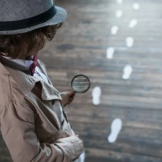 Blog Post
Blog PostA Real-World Biotech Detective

Detective work is not found only in law enforcement. Epidemiologists and data scientists all investigate what happens when a medicine enters the real world, “deciphering” everything from who receives… Read more
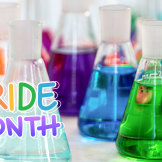 Blog Post
Blog PostBringing Support and Guidance to Scientists Globally

This is the third story in a series for Pride month. Read the first and second stories. Myra Coufal did not decide to be open in the workplace about her sexuality until she reached a certain level… Read more
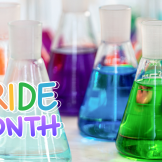 Blog Post
Blog PostA Passion and Pride for Advocacy and Medicine

This is the second story in a series for Pride month. Read the introduction and first story. Throughout his career, Dr. Alejandro Arancibia has engaged with various causes. As an Argentinian gay man… Read more
 Blog Post
Blog PostRaising the Flag of Pride at Work to Support Diverse Communities

For decades, bringing your personal life to the workplace was an unspoken taboo. Now, a new generation of workers is redefining office norms, bringing their full selves to work—and proudly. For… Read more
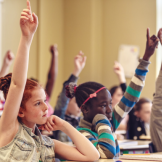 Blog Post
Blog PostElevating Female Scientists in the Classroom

Since 1996, elementary school teacher Kristen Toth has been participating in “Draw a Scientist” exercises with her science students. Over those nearly 30 years, Toth has seen tremendous change,… Read more
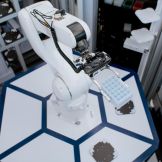 Blog Post
Blog PostTackling the “Impossible” in Biotechnology with AI

Every medicine in your local pharmacy has taken its own unique path to the shelf. From discovery and testing to manufacturing, a new tool is rapidly transforming those pathways: artificial… Read more
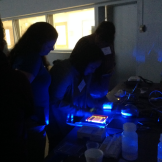 Blog Post
Blog PostSeeing Individual Differences Through a Genomics Lens in the Classroom

A new school year is beginning now in the United States, and for some students, that means they will get exclusive access to a new ABE module, in the making for more than 3 years. The topic?… Read more
 Career Profile
Career ProfileLinda Murakami

When Linda Murakami was in third grade, a team of workers came and removed the top 6 inches of soil in her and her neighbor’s backyards. They were concerned about arsenic contamination from the lead… Read more
- Blog Post
Volunteers Bring New Dimensions to ABE Classrooms
Over the years, students in Wendy Wooten’s biomedical science classes have heard varied stories about career paths into biotechnology, each one making an impact: A research scientist’s… Read more
 Blog Post
Blog PostMission Possible: Forging a Path from the Military to Biotech

On Veterans Day 2021, Lt. Col. Edwin Martinez received special recognition in Puerto Rico for his work during the COVID-19 pandemic—distributing vaccines and COVID tests while helping the local… Read more
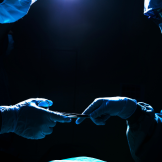 Blog Post
Blog PostEthical Questions Around Transplanted Organ Distribution

Worldwide, over 100,000 people receive life-saving organ transplants every year. Unfortunately, many people still die while awaiting transplant. In the United States, 17 people awaiting transplant… Read more
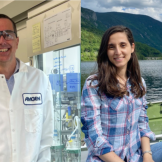 Blog Post
Blog PostCleaning Up Past Perceptions of Chemistry

Chemistry often gets a bad reputation. While it can be blamed for some environmental problems, says Oliver Thiel, that’s not the whole story; this Earth Day, he wants to set the record straight.… Read more
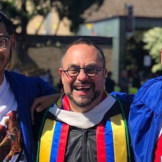 Blog Post
Blog PostNurturing the Next Stewards of Earth

"This year has been incredibly challenging for all of us, and especially for those of us who are used to interacting with others face-to-face on a daily basis. There are days that we feel drained,… Read more
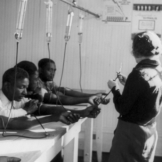 Blog Post
Blog PostBreaking Historic Cycles of Mistrust in Medicine

The COVID-19 pandemic has given us new awareness of a variety of social and health factors that make certain groups more vulnerable to disease and more responsive to treatments. Differences such as… Read more
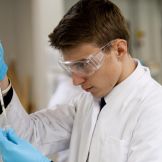 Blog Post
Blog PostResources for Online Biosciences Learning

There are many resources available for online science learning—including courses, open educational resources, videos, simulations, games, and activities. In fact, there are so many resources… Read more